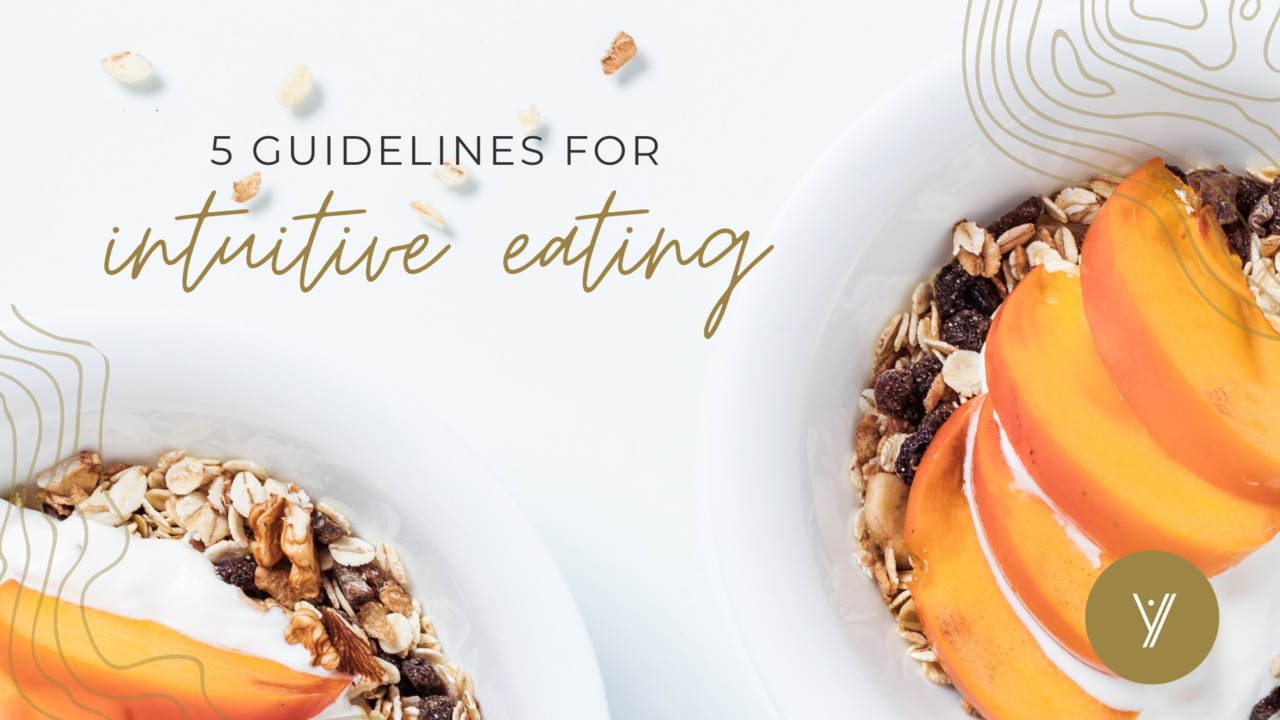5 guidelines to intuitive eating
Dec 07, 2020
With a lot of conflicting movements in the health dialogue over the past little while, we at YOUnique Life have settled in on the concept of intuitive eating.
Intuitive eating is a lifestyle take on health, more than a set of rules to follow, and foods to avoid. It is based on the foundational idea that you know best what your body needs most.
It is a way of thinking about food differently, keeping track of the signals your body communicates to you and then eating accordingly. Intuitive eating is quite simple. When you have the right information available to you it’ll be easy for you to trust the natural way your body responds to certain foods.
Once you have mastered the art of listening to your body, you’ll find yourself with a fresh, new and open outlook on healthy eating and living.
Here are 5 guidelines to an intuitive eating lifestyle:
1. Listen To Your Body
Our bodies are designed to tell us when we are hungry and when we are full. It is important to note when these signals pop up and then listen to what our bodies want and need.
For example, you may feel like you are hungry when actually your body is telling you it needs more water.
Intuitive eating is about learning the language your body speaks to you through these small, and large signals that naturally take place.
When you start to listen carefully to these signals and give your body what it needs, whether it be food, water, rest or to stop eating at a certain point, you are intuitively managing your health.
2. Take Your Time And Be Kind To Yourself
The best thing you can possibly do for your body is to be patient with it. Instead of putting an exorbitant amount of pressure on yourself to perform, or to lose weight faster take the time to make small changes. You’ll find you get more done when you focus on one simple step at a time and make healthy food swaps as you go.
When you start trusting your body signals, you will find yourself easing into a healthy rhythm, rather than forcing your body into a box that it doesn’t want to fit into. It is all about small, practical changes that will make an overall difference. It’s important to take the time to learn what your body needs through the signals it sends you.
3. Break Up With Restrictive Dieting
A diet is generally a set of rules and restrictions that have worked for someone else but may not necessarily be beneficial for you and your body. One size does not necessarily fit all when it comes to how we relate with food. Forget the fad diets and rather focus on understanding your own body and how it naturally communicates with you.
You will find so much freedom in laying down restrictive thinking around food. You will also begin to ease up on yourself and believe that your body is worth the effort and extra special, unique care.
4. Food Is Not The Enemy
Get rid of the idea that food is your enemy! So often we can slip into this kind of thinking and we start hating on food, just because of how we have experienced it.
Make your peace with all the food in the world, acknowledge where you are aiming to eat and where you aren’t and then take practical steps to shift your focus, and your decisions around food.
There are foods out there that will be incredibly bad for your health, some of these are GMOs, preservatives and other toxins, however, there are creative ways to get around those in your kitchen!
Once you move away from some of these harmful foods, and you start to embrace wholesome, delicious foods that are raw, real and in their natural state you’ll find your cravings and taste will change completely. We were not born to love sugar, that was something we learned.
5. Manage Your Emotions, Not With Food
Have you ever heard of ‘comfort eating’? I’m sure we have all been in a place where we have either eaten or avoided eating for the sake of comfort. This is not a healthy habit to be in and a lot of the time, we look for comfort because we aren’t sure where to place our emotions, stress or even just having a bad day.
We want to encourage you not to turn to food as your comforter, but rather learn how to care for and put your emotions in a safer place. Take note of when you feel a need to use food as a comforter, and choose to do something active instead. You could journal, or go for a walk or do something fun with a friend.
Disclaimer: If you have a medical condition please check with your doctor before you try this approach to eating.
